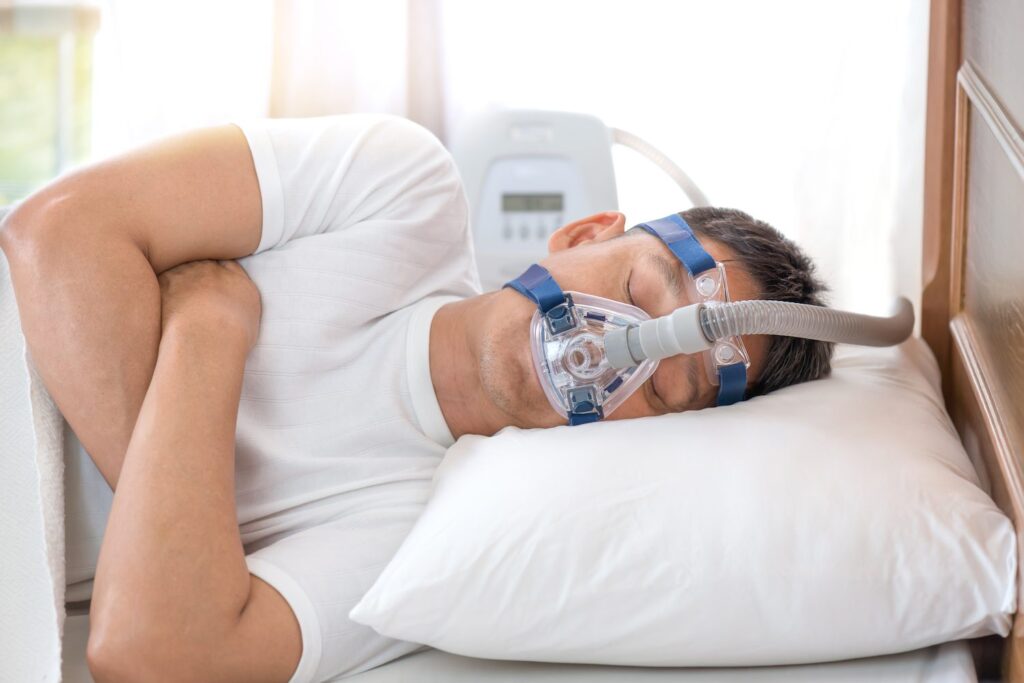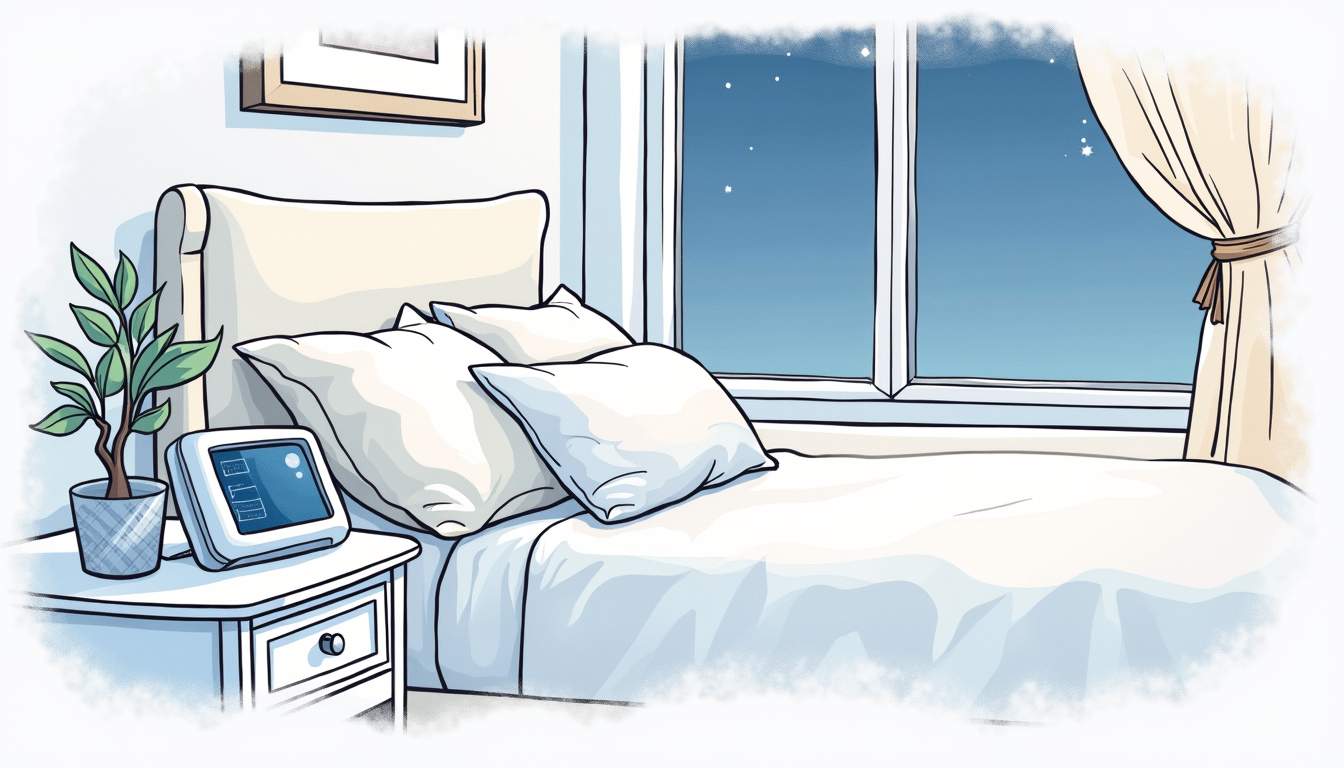Sleep apnea is a common yet serious sleep disorder that can disrupt an individual’s breathing during sleep. The consequences of untreated sleep apnea can be grave, affecting overall health, quality of life, and even increasing the risk of other medical conditions. Understanding sleep apnea and the cost of testing is crucial for early diagnosis and effective management.
Understanding Sleep Apnea
Defining Sleep Apnea
Sleep apnea is characterized by repeated interruptions in breathing during sleep. These interruptions can last from a few seconds to minutes, often resulting in disrupted sleep cycles and insufficient oxygen levels in the body. The two main types of sleep apnea are obstructive sleep apnea (OSA), which occurs when the throat muscles relax excessively, and central sleep apnea (CSA), which happens when the brain fails to send proper signals to the muscles that control breathing. In addition to these, there is also complex sleep apnea syndrome, which is a combination of both OSA and CSA, presenting unique challenges for diagnosis and treatment.
The sleep apnea test cost can vary widely based on several factors. Home sleep tests tend to be cheaper than in-lab tests, with costs ranging from $150 to $500, whereas in-lab studies can range from $1,000 to $3,000 or more depending on the facility and the complexity of the evaluation.
Those suffering from sleep apnea might not even be aware that they are experiencing it, as many episodes occur during deep sleep. However, family members may notice symptoms such as loud snoring or gasping for air at night. The condition can have significant implications for overall health, necessitating medical attention. Long-term untreated sleep apnea can lead to serious health issues, including cardiovascular problems, hypertension, and an increased risk of stroke. Furthermore, the chronic fatigue associated with sleep apnea can impair one’s ability to function effectively in daily activities, affecting work performance and personal relationships.
Common Symptoms of Sleep Apnea
Recognizing the symptoms of sleep apnea is crucial for early diagnosis. Common signs include:
- Chronic loud snoring
- Frequent pauses in breathing during sleep
- Gasping or choking sensations upon waking
- Excessive daytime sleepiness
- Difficulties with concentration or memory
These symptoms can significantly affect a person’s daily life, making it essential to seek medical advice if sleep apnea is suspected. In addition to the physical symptoms, sleep apnea can also lead to psychological effects, such as anxiety and depression. The constant struggle for restful sleep can create a cycle of stress and fatigue, further complicating the individual’s overall well-being. Moreover, individuals with sleep apnea may find themselves relying on caffeine or other stimulants to combat daytime drowsiness, which can lead to a host of other health issues, including digestive problems and increased heart rate.

The Importance of Sleep Apnea Testing
Risks of Untreated Sleep Apnea
Failing to address sleep apnea can lead to various health complications. Chronic sleep deprivation from frequent sleep interruptions may contribute to cardiovascular issues such as high blood pressure, heart disease, and stroke. Additionally, untreated sleep apnea is associated with an increased risk of type 2 diabetes and metabolic syndrome.
Beyond physical health, untreated sleep apnea can adversely affect mental well-being, leading to conditions such as anxiety and depression. The potential for impaired cognitive function and decreased work performance further highlights the urgent need for effective testing and treatment. Sleep apnea can also disrupt relationships, as partners may experience disturbances due to loud snoring or gasping for air during the night, leading to frustration and strain in personal connections. Learn more about disturbances on https://webpages.uidaho.edu/learn/ecology/lessons/lesson06/6_1.htm
Benefits of Early Detection
Early diagnosis of sleep apnea allows for timely intervention, which can improve the quality of life and lower health risks. Treatment options vary and can include lifestyle changes, use of continuous positive airway pressure (CPAP) devices, or even surgery in severe cases.
Moreover, early detection can significantly improve sleep quality, enhance energy levels, and reduce the likelihood of developing associated health problems. Ultimately, proactive management of sleep apnea leads to better long-term health outcomes. In addition to physical health improvements, individuals may experience enhanced mood and productivity, as consistent, restorative sleep can lead to clearer thinking and better decision-making. Furthermore, understanding and addressing sleep apnea can empower individuals to take charge of their health, fostering a sense of control and well-being that extends beyond the bedroom.
Different Types of Sleep Apnea Tests
Home Sleep Tests
Home sleep tests (HST) are designed for convenience and are often the first step in diagnosing sleep apnea. These tests are typically conducted using portable devices that monitor basic parameters such as airflow, oxygen saturation, and heart rate while the patient sleeps in their own bed.
While home sleep tests are beneficial for their accessibility, they may not be suitable for every patient, especially those with existing health issues or those suspected to have complex sleep disorders. Accurate diagnosis is essential, and a healthcare provider will advise on the best approach. For example, individuals with comorbidities like obesity, chronic lung disease, or heart conditions may require more comprehensive testing to ensure that all potential issues are identified and addressed. Moreover, the simplicity of these tests means that they may overlook certain nuances of sleep apnea, such as central sleep apnea or other related conditions that could complicate treatment plans.
Read about sleep apnea test Perth at: What to Know About Sleep Apnea Tests in Perth
In-Lab Sleep Tests
In-lab sleep studies, or polysomnography, are comprehensive tests that provide a detailed overview of sleep patterns and disturbances. Conducted at specialized sleep centers, these tests measure various aspects of sleep, including brain activity, muscle activity, heart rhythm, and breathing patterns.
Although more expensive and less convenient than home sleep tests, in-lab tests offer a higher level of accuracy and detailed insights, making them ideal for complex cases or when the healthcare provider needs more information for a definitive diagnosis. During an in-lab sleep study, patients are monitored overnight, allowing for the observation of sleep stages and any interruptions that may occur. Technicians can adjust equipment in real-time and provide immediate assistance if necessary, enhancing the safety and reliability of the results. Additionally, the controlled environment of a sleep lab can help eliminate variables that might affect sleep quality, such as noise or temperature fluctuations, leading to more accurate data collection and ultimately better treatment outcomes. To read more about temperature click here.
Breaking Down the Cost of Sleep Apnea Tests
Factors Influencing the Cost
Additional factors that may influence cost include the location of the testing facility, the necessity of follow-up consultations, and any additional tests that may be required. It’s crucial for individuals to consult their healthcare providers to understand the costs involved. Furthermore, the type of equipment used during the test can also affect pricing; advanced technologies and more comprehensive monitoring systems typically come at a higher cost. Patients should also consider the potential need for multiple tests if the initial results are inconclusive, which can further escalate expenses.
Insurance Coverage and Sleep Apnea Tests
Insurance coverage for sleep apnea tests can significantly impact out-of-pocket expenses. Many insurance plans cover the costs of sleep studies, particularly when authorized by a healthcare provider. However, coverage may vary among providers and might include conditions or restrictions.
Patients are encouraged to check with their insurance companies and inquire about specific policies regarding sleep apnea testing before scheduling an appointment. Understanding what is covered can help in budgeting for this necessary health assessment. Additionally, some insurance plans may require pre-authorization or a referral from a primary care physician, which can add another layer of complexity to the process. It’s also worth noting that if a patient is diagnosed with sleep apnea, ongoing treatment options such as CPAP therapy may also be covered, but the extent of coverage can differ significantly, making it essential to stay informed about all aspects of insurance benefits related to sleep health.
Preparing for a Sleep Apnea Test
What to Expect During the Test
Preparing for a sleep apnea test can alleviate anxiety and ensure a smoother experience. For home sleep tests, patients will typically receive a device to wear at home, often equipped with instructions for proper usage. On the night of the test, it’s important to maintain a normal bedtime routine. This means avoiding caffeine and heavy meals in the hours leading up to sleep, as these can interfere with the accuracy of the test results. Additionally, creating a comfortable sleep environment—such as adjusting the room temperature and minimizing noise—can help facilitate a more restful night.

For in-lab tests, patients can expect to arrive at the sleep center in the evening, where they will be welcomed by a trained technician. Electrodes will be attached to various parts of the body to monitor critical signals during sleep. Though it might feel uncomfortable at first, procedures are designed to ensure patients can fall asleep comfortably and safely. Patients may also be given a brief orientation about the equipment and what to expect throughout the night, which can help ease any apprehensions. The sleep center is typically designed to mimic a home environment, complete with soft bedding and ambient lighting, to promote relaxation and encourage natural sleep patterns.
Post-Test Procedures
After completing a sleep apnea test, data is typically analyzed by a sleep specialist who will provide a diagnosis based on the results. Patients will be contacted to discuss the findings and potential treatment options if sleep apnea is confirmed. The analysis involves a thorough review of the recorded data, including the number of apneas, oxygen levels, and overall sleep architecture, which helps in understanding the severity of the condition.
Follow-up is essential, as it ensures individuals understand their conditions and the measures available for management. During this follow-up appointment, patients may also have the opportunity to ask questions about lifestyle changes, such as weight management and sleep hygiene practices, which can significantly impact the effectiveness of any prescribed treatments. Regardless of the testing method, the end goal remains the same: to improve sleep quality and overall health through effective treatment of sleep apnea. Engaging in this process not only leads to better sleep but can also enhance daytime functioning and overall well-being, making it a crucial step in the journey toward healthier sleep patterns.

